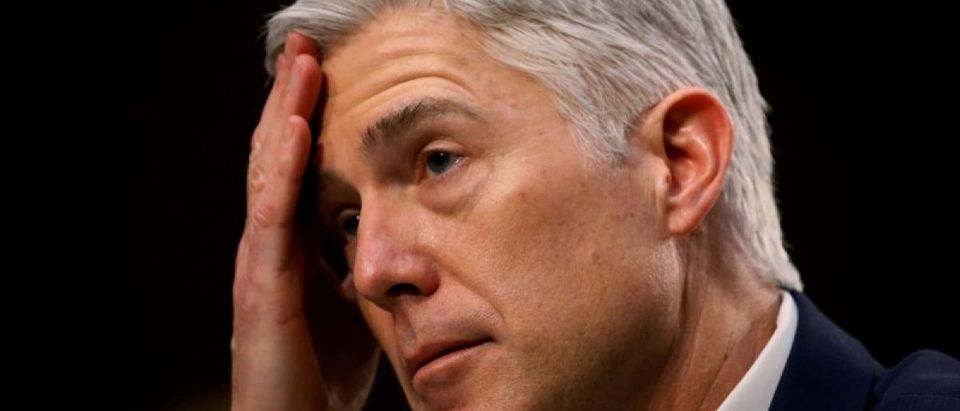Neil Gorsuch will be formally invested Monday as the 101st associate justice of the Supreme Court, though there will be little time for fanfare.
The steady stream of petitions and briefs that make up much of a judge’s typical day will not abate for the high court’s newest member, who was confirmed by the Senate on a 54-45 vote last week. The justices will meet in conference to make decisions about dozens of petitions Thursday, and will hear 14 arguments over two weeks beginning April 17. As such, a seamless integration into the Court’s operations is of the essence.
Gorsuch isn’t a novice where the Supreme Court is concerned. He clerked for Justices Byron White and Anthony Kennedy during the 1993-1994 term, and chaired the U.S. Judicial Conference’s advisory committee on the rules of appellate procedure, making him something on an appeals guru. Still, his first round of clerk-hiring reflects the urgency of executing an orderly transition.
Above the Law’s David Lat reports Gorsuch’s first hires include Mike Davis and Jamil Jaffer, two alums of his 10th Circuit chambers, and Jane Kucera Nitze and Matt Owen, two of his clerks who went on to work at the Supreme Court.
The hiring strategy is typical of other recent transitions. Judges typically develop close professional and personal relationships with their clerks, and new Supreme Court justices often ask their most talented proteges to return to their chambers for a second clerkship. Former clerks with Supreme Court experience are given priority, as they have accrued intimate institutional knowledge working in the high court’s chambers. This combination of professional rapport and SCOTUS-savvy makes these clerks indispensable to a new justice’s success.
He also faces an important administrative decision. The Supreme Court receives approximately 8,000 petitions per year, each of which are reviewed by law clerks and the justices themselves. In order to efficiently review each case, the petitions are divided between the justices and their law clerks. This division of labor is referred to as the “cert pool,” and seven of the current justices participate (Justice Samuel Alito is the exception.)
Deciding whether to join the cert pool will be the most imprtant administrative choice of his first months as a Justice. But it’s safe to assume he’ll take part — otherwise, he’ll have extra reading Monday night.
Send tips to kevin@dailycallernewsfoundation.org.
All content created by the Daily Caller News Foundation, an independent and nonpartisan newswire service, is available without charge to any legitimate news publisher that can provide a large audience. All republished articles must include our logo, our reporter’s byline and their DCNF affiliation. For any questions about our guidelines or partnering with us, please contact licensing@dailycallernewsfoundation.org.


